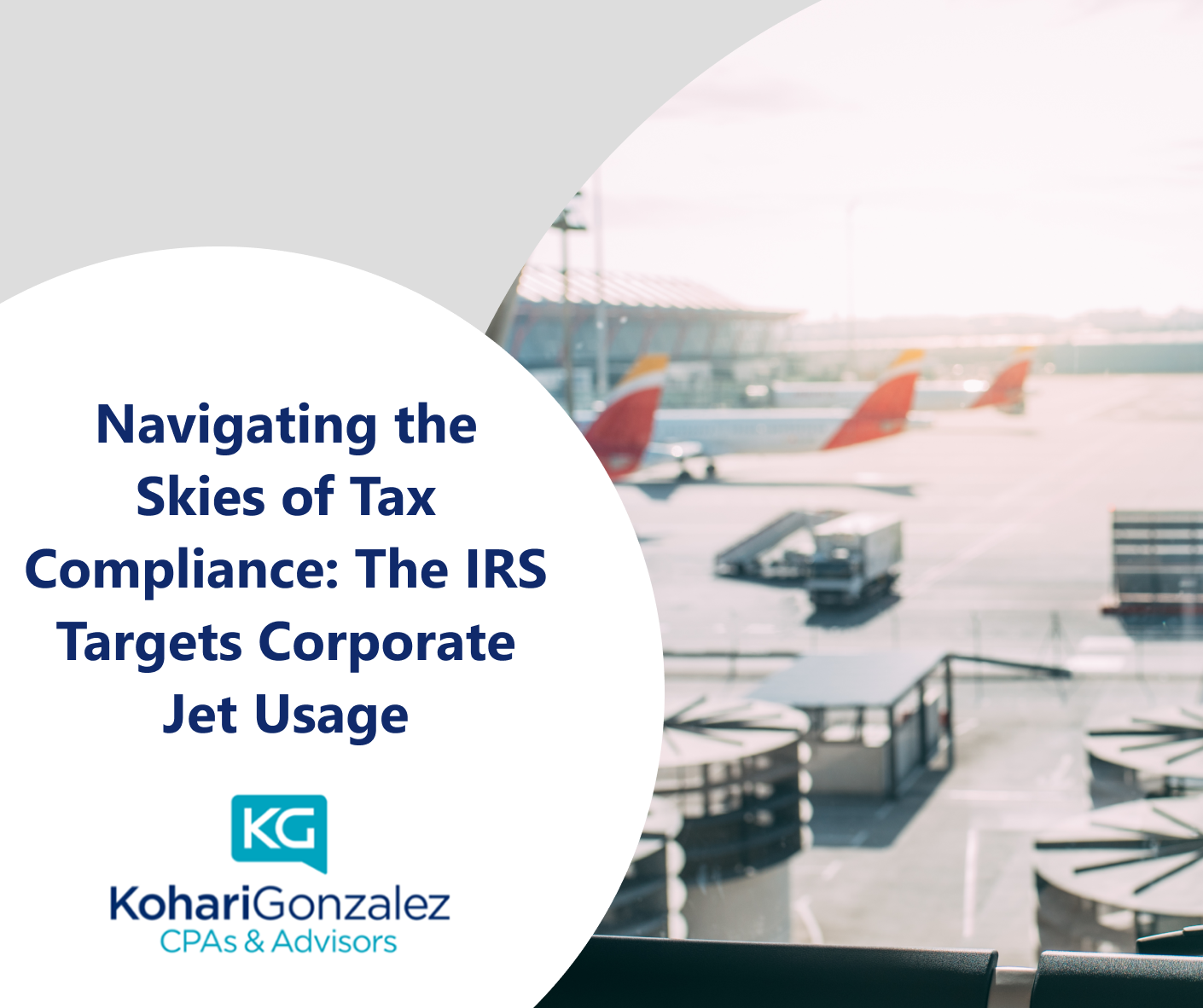
In a significant move aimed at ensuring tax fairness, the Internal Revenue Service (IRS) has announced its plans to initiate a series of audits focusing on the use of business aircraft. This initiative, fueled by the Inflation Reduction Act's funding, marks a concerted effort to tighten the reins on tax compliance among high-income individuals and corporations. As the owners of corporate jets navigate this new regulatory landscape, understanding the implications of these audits is crucial for maintaining compliance and avoiding potential pitfalls.
The IRS Takes Flight
The IRS's decision to scrutinize the personal use of corporate jets is part of a broader strategy to enhance tax compliance among high-income groups, large corporations, and partnerships. Leveraging advanced analytics and the additional resources provided by Inflation Reduction Act, the agency aims to shed light on an area that has seen limited oversight in the past decade due to resource constraints.
Corporate jets, often utilized for both business and personal travel, present a complex challenge in tax law. The tax code allows for business deductions for the maintenance of assets like corporate jets, provided they are used for business purposes. However, the delineation between business and personal use is not always clear-cut, making compliance a nuanced issue.
The Implications for Jet Owners
For executives and other high-net-worth individuals who enjoy the convenience of corporate jets for personal travel, the IRS's focus on aircraft usage carries significant implications. Personal use of a company jet can affect the individual's income inclusion and the company's eligibility for certain business deductions. The meticulous allocation between business and personal use becomes paramount in ensuring compliance and avoiding potential tax liabilities.
Navigating Compliance
As the IRS embarks on these examinations, it is essential for corporations and high-income individuals to proactively address the complexities of corporate jet usage for tax purposes.
Here are several strategies to consider:
1. Meticulous Record-Keeping
Maintain detailed logs of flight usage, distinguishing between business and personal travel. This documentation will be crucial in demonstrating compliance during an audit.
2. Review and Update Policies
Corporations should review their policies regarding the use of business aircraft to ensure they align with tax compliance requirements. Clear guidelines on the allocation of business versus personal use can help mitigate risks.
3. Seek Professional Guidance
Given the complexities of tax law and the potential implications of these audits, consulting with tax professionals who specialize in aviation and high-net-worth taxation is advisable. These experts can provide tailored advice and strategies to navigate the evolving regulatory landscape.
4. Embrace Transparency
In dealings with the IRS, transparency is key. Being forthcoming and cooperative during audits can facilitate a smoother process and potentially mitigate penalties for any inadvertent non-compliance.
Looking Ahead
The IRS's initiative to audit corporate jet usage is just one facet of a larger effort to ensure tax fairness and compliance among high-income taxpayers and large entities. With the agency ramping up its scrutiny and leveraging new resources and technologies, the message is clear: the era of flying under the radar on tax responsibilities is coming to an end.
For high-net-worth individuals and corporations that rely on the convenience of corporate jets, adapting to this new reality means prioritizing compliance and transparency. By taking proactive steps to align with IRS requirements, jet owners can navigate the skies of tax compliance with confidence, ensuring that their journey remains smooth and unencumbered by regulatory turbulence.
Don't navigate the complexities of IRS audits and tax compliance on your own. Our team of tax professionals specializes in assisting high-net-worth individuals and corporations. With our expertise, we can help you ensure that your tax strategies are both compliant and optimized. Contact us today for a personalized consultation and take the first step towards peace of mind and tax compliance. Let us guide you through the skies of tax regulations with confidence.



